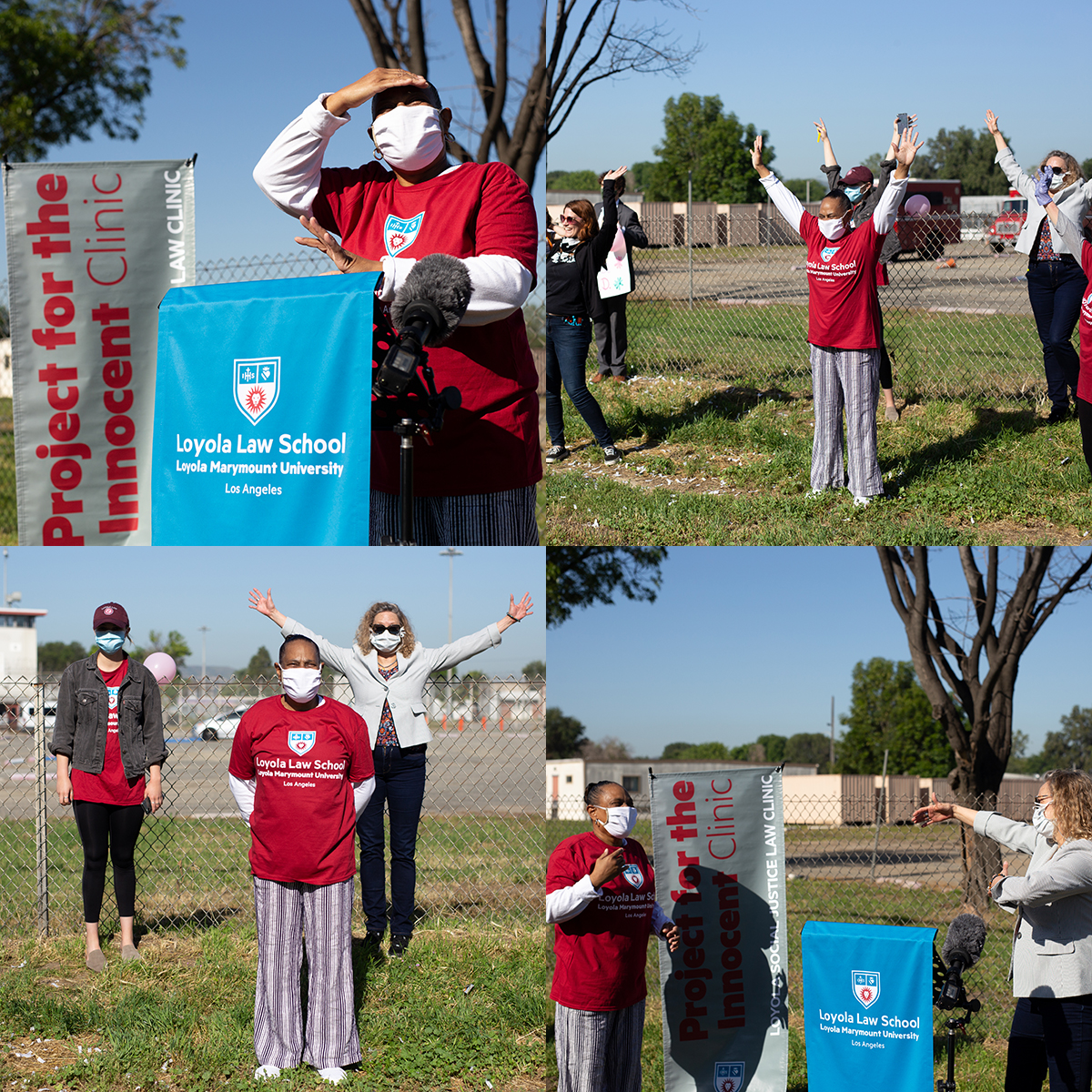Loyola Project For The Innocent Secures Release Of Client Who Spent 40 Years In Prison On An Illegal Sentence
LMU Loyola Law School Project for the Innocent client Janet Dixon walked into the cheers of clinic attorneys and students on Wednesday, April 22 when she was released after nearly 40 years in prison at the California Institution for Women. Her release was ordered after the LPI demonstrated the sentence was unlawful and that she should have been eligible for parole 22 years ago.
Dixon was arrested in 1980, when she was 18 years old. With no criminal record, she was convicted of an arson felony-murder and sentenced to die in prison. With the help of LPI, Dixon was not only able to overturn her sentence, but she is also challenging the legality of her conviction.
“I’m incredibly proud of our team and grateful to everyone who helped make this happen,” said Professor Laurie Levenson, who founded Loyola’s Project for the Innocent. “This is one of those rare situations where a number of people in the criminal justice system pitched in to help secure Janet’s release. We are grateful to everyone who helped along the way.”
“We will continue to fight for Janet to show that she did not receive a fair trial 40 years ago,” said LPI Legal Director Paula Mitchell. “This is a heartbreaking case for many reasons.”
In the early 1970s, when Janet Dixon was a little girl growing up in the St. Thomas Projects in the Thirteenth Ward in New Orleans, a neighbor named Sylvia Sturgis began sexually molesting her. Court papers show that once Dixon’s mother learned of the molestation, she called the police to report Sturgis and at that point, Sturgis abducted Dixon and took her across the country to Los Angeles. Dixon was only 14 years old.
“Over the next four years, with Dixon away from her home and family and completely under Sturgis’s control, Sturgis sexually and physically abused Dixon,” said Adam Grant, LPI’s Program Director. “Sturgis admitted at one of Ms. Dixon’s court hearings that she began sexually molesting Janet when Janet was only a minor. Sturgis withheld food, money and other basic necessities of life as a way of controlling Dixon, who had become entirely reliant on Sturgis for food and support,” Grant explained.
Court papers show that by 1980, Sturgis had become convinced that Dixon was possessed by demons and she told Dixon that she needed to conduct an exorcism by fire on herself to rid herself of these demons. On June 6, 1980, despondent and confused, with no friends and with her family on the other side of the country, Dixon poured gasoline on herself and lit herself on fire, in a misguided attempt to rid herself of the demons. Sturgis’s eight-year-old daughter was tragically killed in the fire. Sturgis was never prosecuted, but instead became the key prosecution witness against Dixon. According to LPI staff attorney Megan Baca, “there were several other serious problems with the case, including the false testimony by three experts -- an expert fire marshal, chemist, and forensic pathologist.” The court proceedings challenging the reliability of that evidence are ongoing.
The LPI is part of the Loyola Social Justice Law Clinic, an umbrella organization comprising 20-plus LLS live-client clinics. Learn more at www.lls.edu/lpi.
